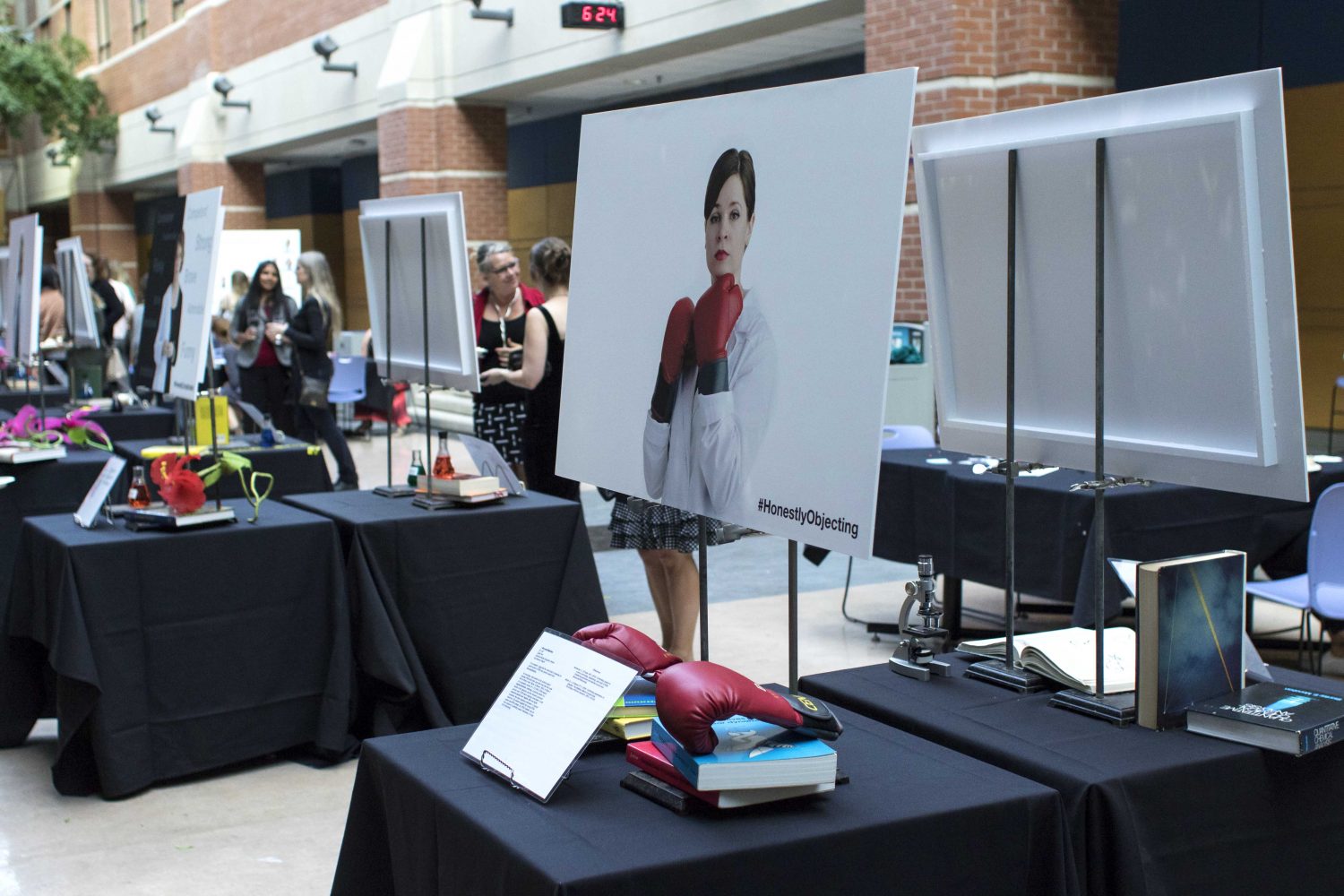#DistractinglyHonest exhibit challenges gender inequality in science


Last fall, Eden Hennessey, a PhD student at Wilfrid Laurier University, unveiled her #DistractinglySexist exhibit at the Laurier Library, which focused on the obstacles female scientists face in a male-dominated industry.
A year later, Hennessey presented her exhibit, #DistractinglyHonest, in Laurier’s Science building to a crowd of students, faculty members and individuals in the Laurier community.
The exhibit launched last Thursday and was open to the public on Saturday, as part of Doors Open Waterloo Region.
While the message was the same, Hennessey was motivated to focus more on the obstacles women face in the workplace because of their sex and bring evidence of women confronting sexism in the workplace.
To do this, Hennessey displayed emails and comments—both positive and negative—from those who have seen her work across North America.
“I really wanted to highlight the fact that these people are just making my case stronger, so you can absolutely be mean, you can be callous—it just proves the point that whenever somebody talks about diversity in science that you freak out,” she said.
“It’s about being honest. It’s about being inspired by people who question the validity of your comments and not giving them too much power, but then using it to make something else. It’s more impactful. They can reach more people.”
One of Hennessey’s pieces titled “#HonestlyEqual” shows two female scientists from York University in men’s apparel, accompanied with fake mustaches.
According to Hennessey, the piece is a play on how women are expected to diminish their female characteristics and take on a more masculine role once they become successful.
“These are not necessarily bad characteristics, but they’re traditionally masculine characteristics, but when a woman has them it really shocks people. It surprises them because it’s incongruent with the stereotype that you’re going to be more submissive and more quiet,” she said.
Another piece by Hennessey, which shows another female scientist carrying a baby while holding a laptop, aims to prove how physiological differences, such as pregnancy, can challenge women in the workplace.
“Our experiences [as men and women] are not the same.”
Since her first exhibit, Hennessey has gone on to bring a louder voice for women in science, particularly those in the Kitchener-Waterloo Region and in the Laurier community.
In the summer, Hennessey had the opportunity to speak to students about her first exhibit at Harvey Mudd College in Claremont, California and at the California Institute of Technology in Pasadena.
In February, Hennessey was sent to the United Nations Headquarters in New York as part of their International Day for Women and Girls in Science.
As a student representative, Hennessey had the opportunity to converse with female scientists on an international scale.
“It was really cool hearing in certain countries where water, for instance, is really scarce. Women control all the water access, they need to know science to do that,” said Hennessey.
“The community will die if women aren’t educated about water safety, so it is a matter of a few numbers here and there. This is life and death. [Therefore] women in science becomes an issue of survival and sustainability.”
This year, Hennessey decided to put more women in other areas of work into her exhibit.
The exhibit includes familiar faces such as Laurier’s dean of students in Waterloo, Leanne Holland Brown and Shohini Ghose, professor in physics and computer science and the director of the Centre for Women in Science.
“I decided I wanted to pull in allies too because we know that you need everyone on board for things to work, you can’t just have people who are already impacted like I need other people. Like Leanne has power. She has influence. She is someone who if we have her with our fight, it makes the fight more meaningful.”
While Hennessey still has to complete her dissertation, she said she won’t stop showing her exhibit to the Laurier community.
She is planning on going back to speak at Harvey Mudd and she also hopes to later work on a series about men.
“I think you have to…highlight that [people] are a part of the change, that they’re not standing outside looking in or feeling accused or feeling bad about their role,” she continued.
“The first step is recognizing privilege and discrimination where it does exist and I think you have to get people on board because it’s not all men who are perpetrating discrimination. There are many, many supportive men out there who need to be recognized as well as allies.”


